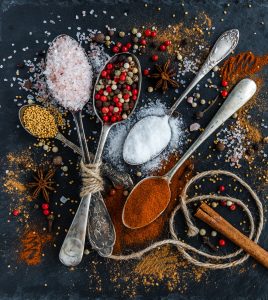Last week it was announced that Chef Sam Storey has been nominated for a Cook of the Year award in recognition for the work he has done as part of the Altered Eating (AE) Network in collaboration with Northumbria University. Here Dr Duika Burges Watson talks to us about the network, her ESRC IAA project alongside her ongoing work on helping improve the resources and quality of life for those living with altered eating difficulties.
Losing the ability to eat well, what we term altered eating, can reduce quality of life and have serious consequences for health and wellbeing. Previous work with head and neck cancer survivors showed that their needs are highly complex (including physical, social difficulties; sensory deficits and mental health aspects) however they had not been addressed by clinical researchers in a ‘holistic’ way.
The AE network provides a forum for researchers interested in comprehensive approaches to address temporary and chronic eating difficulties. This group builds on a National Institute for Health Research/Research for Patient Benefit funded project with survivors of head and neck cancer who were clear that current regimes of medical assessment and support did not address or ameliorate the way an altered relationship to food had changed their lives far beyond the realms of weight and nutrition.
The ESRC IAA project in particular involved scoping workshops to find out the range of difficulties faced by patients and what support was needed: participants identified the need for practical advice such as cooking hints and tips. Sam, the expert in-house chef spent hours in the community kitchen experimenting with everything from chicken stock to chocolate mousse, with the aim of bringing back the lost pleasures of food and eating together. Tasting workshops were held and clips and recipes are now openly available on You Tube as a public resource (we are building on this). A number of charities and groups whose members also have altered eating difficulties also came forward (e.g. those experiencing Parkinson’s disease; Sjogren’s syndrome) as a result of these workshops too, which was encouraging and showed this work could be widely applicable in a number of settings. Their specific needs also highlighted the demand for a more general framework that could help professional practitioners e.g. dentists, dieticians and oncologists think about patients and their individual altered eating needs.
We have now produced a definition of altered eating and a framework for holistic assessment of eating disruption from the physical to the social and emotional; alongside a menu of interventions to address eating disruption (for example: smell and taste training, cooking workshops, coping tips and hints). We are now developing an easy to use assessment tool to measure and visualise the extent of eating difficulties in order that clinicians and patients can easily see the range of issues involved, and to help them identify management strategies or medical support that can help (the ‘AE package’). The research network is pioneering new psychosocial interventions for chronic or life altering illness and new approaches to clinical practice. We are giving ‘thought to food’ and ongoing research hopes to make sensory pleasure a reality for those living with altered eating difficulties in the future.

